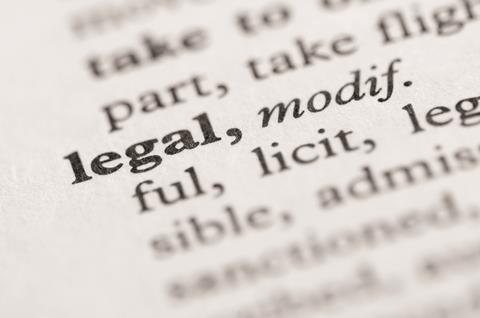Ted Lowery looks at a case in which the defendant’s expert evidence was excluded
The case
Dana UK Axle Ltd vs Freudenberg FST GmbH [2021] EWHC 1413 (TCC)
Before Mrs Justice Joanna Smith
Technology and Construction Court
Judgment delivered 26 May 2021
The facts

Freudenberg supplied pinion seals for rear axle units that Dana assembled and delivered to Jaguar Land Rover. Following a large number of vehicle warranty failures during 2013-16, Dana alleged manufacturing failures, and in 2018 it commenced proceedings against Freudenberg seeking recovery of £11,243,026 paid to Jaguar Land Rover in respect of such warranty failures.
The court’s directions provided for expert evidence in the fields of engineering and materials/polymer science and on 6 March 2021 Freudenberg served three reports prepared by Professor Salant, Mr Jackowski and Professor Mead. Dana raised concerns that Mr Jackowski and Professor Mead had visited Freudenberg’s manufacturing sites without giving notice and that the three reports did not identify the documents relied upon. At the pre-trial review on 19 March 2021 Freudenberg was ordered to file revised reports that complied with CPR Part 35 to include: (i) details of all materials provided to the three experts; (ii) disclosure of documents and notes of the site visits; and (iii) identification of the information relied upon to support the experts’ opinions.
On 26 March Freudenberg served revised reports by Mr Jackowski and Professor Salant only and stated that the experts had been provided with access to the witness statements, the pleadings and all disclosed documents.
On 16 April Freudenberg provided further disclosure of documents referred to in the reports, including emails indicating that the experts had been provided with information directly by Freudenberg personnel.
As ordered by the judge on the opening day of the trial, on 10 May Freudenberg disclosed further communications with its experts.
Dana complained that there had obviously been a free flow of information between Freudenberg and its experts without any gatekeeping by solicitors and applied for an order excluding Freudenberg’s expert evidence on two grounds: first, that Freudenberg had not complied with the orders made at the pre-trial review and, second, that Freudenberg had failed to comply with Part 35, the Practice Direction and the 2014 Guidance for Experts.
The issue
Should the evidence of Freudenberg’s experts be excluded?
The decision
The judge found that over a long period of time a significant amount of information had been provided to each of Freudenberg’s experts that had never been disclosed to Dana or otherwise identified in the reports. It was also obvious that the experts had enjoyed unfettered and unsupervised access to Freudenberg personnel and had been provided with comment and information during various calls and meetings. From the documents disclosed in April and May the judge highlighted several references to contact between Freudenberg’s experts and senior Freudenberg personnel for which no records had been provided.
The judge found that Freudenberg was materially in breach of the orders made at the pre-trial review where: (i) they had failed to provide full details of all materials provided to their experts; (ii) save for a few photographs no disclosure had been provided concerning the site visits referred to in the reports of Professor Mead and Mr Jackowski (the judge noting some of the site visits undertaken by the experts had not been disclosed until mid-trial); and (iii) information relied upon for the experts’ opinions was not properly identified, exemplified by Mr Jackowski having apparently cited a 2013 analysis that did not in fact exist.
As to the second ground, the judge found that Freudenberg’s experts had failed to comply with Part 35, the Practice Direction and the 2014 Guidance for Experts: among other things, the frequent and unsupervised direct contact between Freudenberg and its experts meant the court could not be satisfied that the reports included the substance of the instructions the experts had received and it appeared possible that Freudenberg had influenced the experts’ input into the joint statements. In summary, the conduct of all three of Freudenberg’s experts was such as to call into question their impartiality and to create doubt as to whether the reports reflected their own independent analysis. The judge therefore concluded that on either ground advanced by Dana, it was appropriate to exclude all of Freudenberg’s expert evidence.
Commentary
As the judge observed, reliance upon expert evidence is not an absolute right but requires the court’s permission, which permission presupposes compliance with the court’s rules by both parties so that a level playing field is maintained.
The judge stressed the role of solicitors in policing exchanges between experts and clients so there can be confidence that both sides have abided by the court’s rules. Here, manifest failures had occurred where Freudenberg’s solicitors had apparently played little part in the preparation of the expert evidence.
Ted Lowery is a partner in Fenwick Elliott



























No comments yet